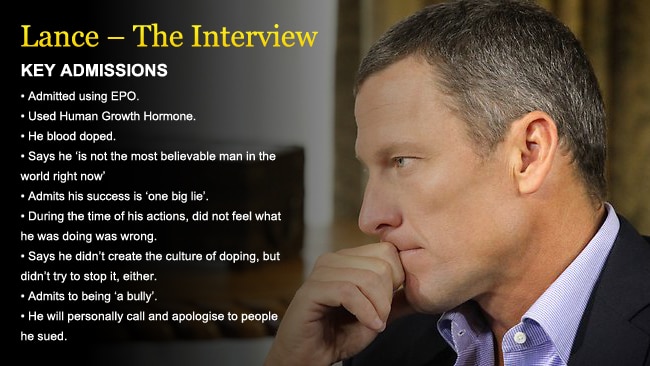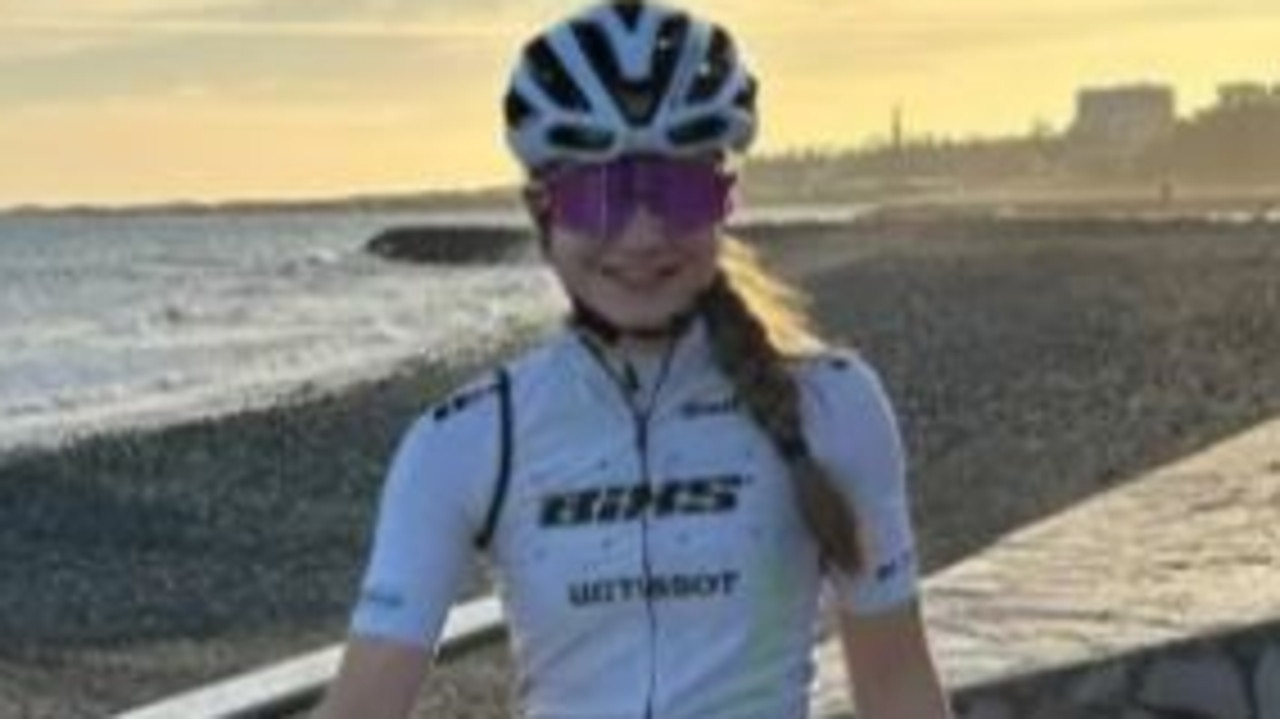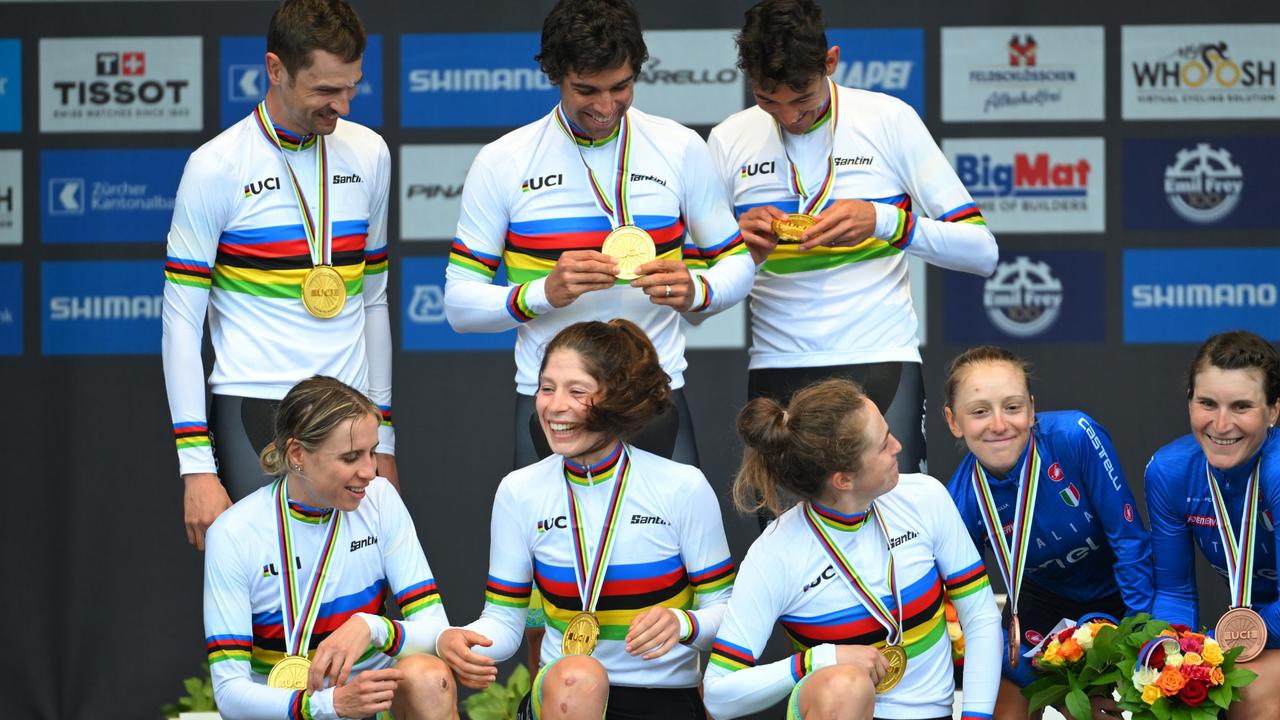Lance Armstrong tries remorse
LANCE Armstrong tweeted a photo of himself in November relaxing on his couch, gazing up at seven framed Tour de France yellow jerseys.

LANCE Armstrong, seemingly unbowed by a 1000-page US Anti-Doping Agency report detailing his doping over more than a decade, tweeted a photo of himself in November relaxing on his couch, gazing up at seven framed Tour de France yellow jerseys.
"Back in Austin and just layin' around," Armstrong wrote on the tweet.
On Monday, Armstrong took a seat on America's couch, sitting down with Oprah Winfrey for his first interview since the USADA report's October release.
The interview, in which Winfrey said Armstrong acknowledged doping, will be televised in prime time today and tomorrow and is the first step in his bid to rebuild his reputation.
Longtime Armstrong associates, fans, benefactors for his Livestrong foundation, legal scholars and anti-doping officials claim the interview is also a pivotal moment in the biggest doping scandal in international sports history.
"The first of many steps toward redemption," said Steven Ungerleider, a long-time Armstrong acquaintance who has served on the World Anti-Doping Agency's ethics and education committee.
LANCE v OPRAH - TODAY
Join us for complete coverage of the Lance Armstrong interview from 1pm AEDT today and tomorrow.
Live chat - Instant analysis from Leo Schlink - Video highlights
Click here to follow our live chat and coverage
Oprah's interview with Armstrong will be shown live in Australia on the Discovery Channel on Foxtel today and tomorrow at 1PM AEDT.
The Winfrey interview and Armstrong talks with USADA and WADA officials could also mark significant steps forward for cycling as the sport attempts to crawl out from beneath the wreckage of what retiring Olympic cycling champion Nicole Cooke of Great Britain this week described as "the time of Lance and all of the dreadful tragedy that the abuses surrounding him have brought to my sport".
Cooke is among the many sceptics who question whether the Winfrey interview is a genuine act of contrition by Armstrong or just another calculated public relations ploy.
"Lance is nothing if not publicity savvy," said Bob Babbitt, the longtime co-publisher of Competitor magazine, who has known Armstrong since the Texan was 15.
"The question I have, is he genuinely sorry or does he rationalise doping as something he had to do because he wanted to win?"
Yet in attempting to reshape his image and lay the groundwork for a possible reduction in USADA's lifetime ban from competition, Armstrong has recklessly opened himself up to the likelihood of civil lawsuits, criminal charges and possibly even prison, said Peter Keane, dean emeritus at San Francisco's Golden Gate School of Law.
"He's totally overcome by his own arrogance, his belief that somehow his personality can overcome this criminal and civil jeopardy he's dug himself into these last 15 years," Keane said.
"It shows a huge ego."
For more than a decade Armstrong, Babbitt said, "has lived on his own little planet," propelled by a universal storyline that resonated well beyond his sport.
Which is why Armstrong's fall is even more dramatic than other disgraced sports superstars such as Ben Johnson, Barry Bonds, Roger Clemens and Mark McGwire, all linked to performance-enhancing drugs.
It is also why Armstrong faces a higher bar in the court of public opinion.
Armstrong, the cancer survivor who went on to conquer the world's most storied endurance competition a record seven times, just didn't put up eye-popping numbers, he sold hope.
"I remember during the Tour de France you would go to his trailer and it would be surrounded by cancer survivors or the parents of children with cancer," Babbitt said.
"They just wanted Lance to put his hand on them. They wanted him to touch them with hope."
"I'm sorry you don't believe in miracles," Armstrong said of sceptics in his victory speech after his final Tour victory in 2005.
Armstrong and his story helped Livestrong raise $475 million for research and other cancer-related projects. But there was no miracle.
Rather Armstrong, as first claimed by former US Postal teammate Floyd Landis and later by other former team-mates and associates, was aided by an elaborate doping program of which he was at the centre, the USADA report found.
More Coverage
" ... People have to tell their kids that Santa Claus isn't real. I hate to be the guy to do it, but it's just not real," Landis said.
Coming clean about the extent of his doping, is critical not only in Armstrong's bid to rehabilitate his image but in his quest to convince USADA and WADA officials to reduce his lifetime ban.




